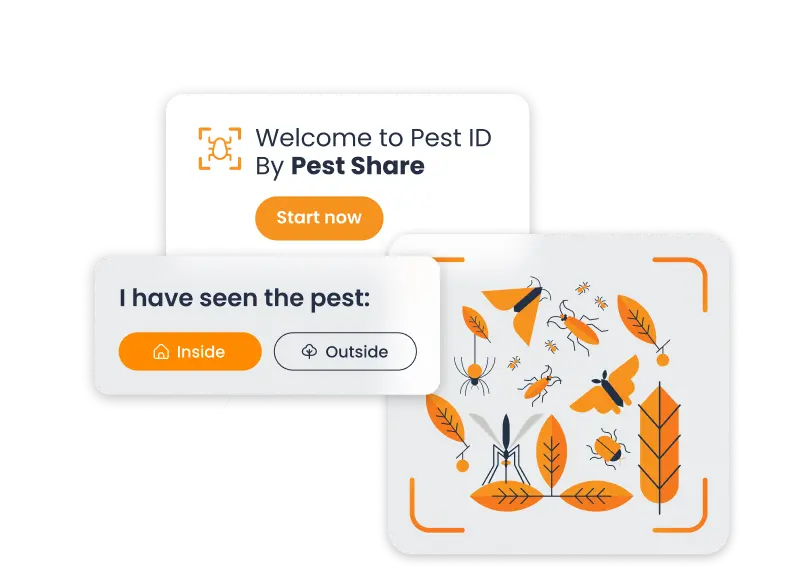When pests invade your space, whether it’s ants in the kitchen or something scratching in the attic, finding the right person to call isn’t just a matter of convenience—it’s essential. But how do you make sure you’re picking a good pest controller who can get the job done right and not just take your money? Let’s walk through the first steps you should take to ensure you’re choosing wisely.

Smarter Pest Control, Fewer Headaches.
Understanding Pest Control Needs
The first step is knowing what kind of pest problem you have. Different pests require different strategies. For example, the approach to getting rid of mice in the garage is different from tackling a termite problem in your woodwork. Recognizing the specific pest issue you’re dealing with is crucial because it helps you communicate clearly with potential pest controllers about what services you actually need.
Additionally, understanding your situation helps you gauge whether the pest controller is knowledgeable or just trying to sell you a one-size-fits-all solution. Some pests, like bed bugs, require very specific treatments that not all pest controllers may offer. Others, like bees or bats, might need humane removal techniques, which can also influence your choice of pest controller.
Researching Potential Pest Controllers

Once you know what you’re dealing with, it’s time to start looking for the right expert. A good starting point is asking friends, family, or neighbors for recommendations—especially those who have dealt with similar pest issues. If that doesn’t pan out, online searches and local business directories can provide a list of pest controllers in your area.
While researching, pay special attention to customer reviews. Websites like Yelp, Google Reviews, and local forums can give you a sense of what other people’s experiences have been like. Look for comments about the effectiveness of the pest control, the professionalism of the staff, and whether people think they got value for their money. Remember, a few bad reviews among mostly good ones can be normal, but if you notice a trend of negative feedback, that’s a red flag.
Qualifications and Certifications
Checking for qualifications and certifications can give you confidence in a pest controller’s ability to handle your problem safely and effectively. Legitimate pest controllers will have the necessary licenses required by local or state regulations, which ensures they’re operating legally and have a basic professional standard.
Moreover, many pest controllers go further by obtaining certifications from national or international pest management associations. These certifications often require passing exams and continuous education, which keeps them up to date with the latest pest control methods and safety protocols. When you’re talking to potential pest controllers, ask them about their qualifications and what organizations they’re certified with. This information can often be found directly on their websites too.
Experience and Reputation
Experience matters in pest control. An experienced pest controller not only brings a wealth of knowledge about different pest problems but also understands local pest trends and how to deal with them effectively. When researching, look into how long the pest controller has been in business and what kind of services they offer.
Reputation is closely linked to experience. A good reputation in the community or industry can tell you a lot about the reliability and quality of a pest controller’s services. Check if they have any awards or recognitions from industry groups, and see if they’re involved in local community activities, which can indicate a commitment to service and reliability.
First Contact and Communication
When you make that first call or send that initial email, pay attention to how the pest controller responds. Are they prompt and professional in their communication? Do they seem eager to help, and are they willing to answer your questions thoroughly? First impressions can tell you a lot. A pest controller who is slow to respond or seems disinterested might not be very reliable when you need their services the most.
It’s also important to note how they handle your specific pest problem during initial communications. A good pest controller will ask detailed questions about your situation to diagnose the problem accurately. They should want to know when you first noticed the pests, where you’ve seen them, and what actions you’ve taken so far. This detailed inquiry not only helps them prepare appropriately but also shows their commitment to providing a tailored solution rather than a generic one.
Clear and transparent communication is key. You want a pest controller who explains their methods, what treatments they suggest, and why they believe these are the best options for your situation. They should also be clear about the costs involved and the expected outcomes. If a pest controller is vague about the details or avoids discussing costs upfront, it might be a sign to look elsewhere.
Assessing Their Approach to Pest Management

As you discuss your pest problem, it’s crucial to understand the pest controller’s approach to managing infestations. Do they use integrated pest management practices? Are their treatments safe for pets and children? These questions are important because they affect not only the effectiveness of the treatment but also the health and safety of your household.
Ask about the tools and products they use. Are they environmentally friendly? How do they ensure the safety of non-target animals and plants? A responsible pest controller will be transparent about their practices and the products they use, ensuring you’re fully informed about the process.
Also, consider their strategy for long-term pest management. A good pest controller doesn’t just focus on immediate relief but also on preventing future problems. They might offer advice on sealing entry points, managing waste, or adjusting storage practices in your home to deter pests. This holistic approach shows that they are looking out for your best interests and not just a quick fix.
Safety Measures and Insurance
Ensuring that the pest controller takes proper safety measures is non-negotiable. They should be able to articulate exactly what safety protocols they follow while treating your home. This includes how they plan to handle and dispose of any hazardous materials and what steps they take to prevent accidents or contamination.
Insurance is another critical factor. A professional pest controller will have liability insurance that covers any damages to your property during the treatment process. This not only protects you financially but also indicates that the pest controller is serious about their business and their responsibility towards their clients.
Asking for proof of insurance and details about their safety measures shouldn’t be awkward. A trustworthy pest controller will understand your concerns and be ready to provide all necessary documentation and explanations to put your mind at ease.
Cost and Value Considerations
Understanding the cost structure of pest control services is essential. When you receive quotes from different pest controllers, it’s important to compare them carefully. Look beyond just the price—consider what’s included in each quote. Does the service include follow-up visits? Are there guarantees or warranties on the work? Cheaper doesn’t always mean better, especially if it means skimping on important services that could prevent future infestations.
A good pest controller will be transparent about their pricing. They should clearly explain what factors influence the cost of their services, such as the type and severity of the infestation, the size of your property, and the methods they will use to treat the problem. They should also be upfront about any ongoing costs if a long-term treatment plan is needed. Understanding these details will help you gauge whether you’re getting good value for your money.
Making the Decision
After gathering all the necessary information, it’s time to weigh your options. Review your notes from each interaction, the services offered, the costs involved, and the overall feeling you got from each pest controller. Trusting your gut is important—if someone seems knowledgeable and attentive, and their values align with yours, they might be the right choice.
It’s also wise to consider the level of professionalism and the rapport you felt during your interactions. A pest controller who made you feel comfortable and confident about their abilities is likely a good fit. This person will be coming into your home and dealing with issues that can significantly impact your living space, so feeling good about your choice is crucial.
Establishing a Long-term Relationship
Once you’ve chosen a pest controller, think about how you can build a long-term relationship with them. Regular inspections and preventative treatments can keep pest problems from recurring, which saves you stress and money in the long run. A reliable pest controller who knows your home’s history can provide personalized advice and quicker solutions tailored to your specific situation.
Maintaining open communication is key. Make sure you’re clear about how often you’d like your property inspected and under what circumstances you’d expect them to take action. Having a pest controller who is familiar with your property can be immensely beneficial, as they will understand the specific challenges and needs of your space.
Conclusion
Choosing the right pest controller is about more than just solving an immediate problem. It’s about ensuring your home remains safe and comfortable for the long haul. Take the time to carefully evaluate potential services, focusing on their expertise, professionalism, safety measures, and the value they offer. When you find the right fit, you’ll feel that peace of mind knowing your pest problems are in good hands. Ready to take that step? Reach out to a pest controller today and start the conversation!





